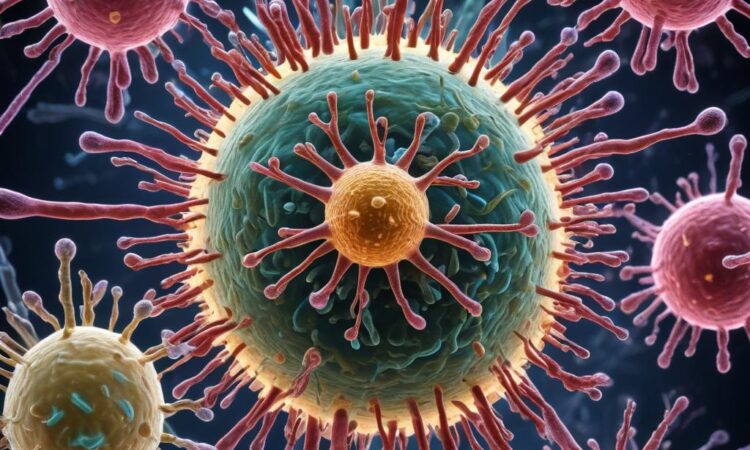The Growing Threat of Antimicrobial Resistance
The world faces a looming crisis: the rise of antimicrobial resistance (AMR). Antibiotics, once miraculous tools against bacterial infections, are becoming increasingly ineffective as bacteria evolve and develop resistance to these life-saving drugs. This phenomenon, driven by factors ranging from overuse and misuse of antibiotics in humans and animals to poor sanitation and hygiene practices, poses a significant threat to global health and economic stability.
Understanding the Threat
The implications of AMR are far-reaching. Infections that were once easily treatable with antibiotics are becoming increasingly difficult, if not impossible, to cure. This leads to longer hospital stays, increased healthcare costs, and higher mortality rates. Simple procedures like surgery or organ transplantation, which rely heavily on antibiotics to prevent infections, become significantly riskier. The impact extends beyond individual health, affecting national economies and global development efforts.
The World Health Organization (WHO) has consistently warned about the severity of the AMR crisis, emphasizing that without urgent action, common infections could once again become deadly. This is not a future threat; it is a current reality affecting communities worldwide. Patients are facing longer recovery times, experiencing more severe illnesses, and succumbing to infections that would have been easily treated a few decades ago.
The Development of New Antibiotics: A Race Against Time
The development of new antibiotics is crucial to combating AMR. However, this process is complex, costly, and time-consuming. Pharmaceutical companies are often hesitant to invest heavily in antibiotic research and development due to the relatively low profitability compared to other drugs. Antibiotics are typically used for shorter periods, limiting their market size and return on investment. Furthermore, the development of truly novel antibiotics that circumvent existing resistance mechanisms presents a significant scientific challenge.
Despite these challenges, significant efforts are underway to accelerate the discovery and development of new antibiotics. Researchers are exploring innovative approaches, such as repurposing existing drugs, investigating novel drug targets within bacteria, and developing new classes of antibiotics. International collaborations and public-private partnerships are essential for fostering innovation and ensuring that new antibiotics reach those who need them most.
Strategies to Combat the Spread of Resistant Bacteria
Addressing AMR requires a multifaceted approach involving individuals, healthcare professionals, governments, and the pharmaceutical industry. Key strategies include:
- Responsible antibiotic use: Reducing unnecessary antibiotic prescriptions and ensuring appropriate use of existing antibiotics is paramount. This requires educating healthcare professionals and the public about the responsible use of antibiotics, promoting stewardship programs, and improving diagnostic capabilities to avoid unnecessary antibiotic use.
- Infection prevention and control: Implementing rigorous infection prevention and control measures in healthcare settings, as well as in the community, is essential. This includes hand hygiene, sterilization of equipment, and proper isolation procedures for patients with infectious diseases.
- Improving sanitation and hygiene: Improving access to clean water, sanitation, and hygiene facilities, particularly in low- and middle-income countries, is crucial for preventing the spread of infectious diseases and reducing the selective pressure for antibiotic resistance.
- Surveillance and monitoring: Establishing robust surveillance systems to monitor the emergence and spread of antibiotic resistance is critical. This data is essential for informing public health interventions and guiding policy decisions.
- Investment in research and development: Increased investment in research and development of new antibiotics and alternative therapies is crucial to ensure a sustainable pipeline of effective antimicrobial agents.
- Regulatory frameworks: Strong regulatory frameworks are needed to ensure the responsible use of antibiotics in both human and animal health. This includes measures to control the use of antibiotics in agriculture and aquaculture.
- Global cooperation: International collaboration is essential to address the global nature of AMR. This involves sharing information, coordinating research efforts, and harmonizing policies and regulations.
The Economic Burden of AMR
The economic consequences of AMR are substantial. Increased healthcare costs due to prolonged hospital stays, higher mortality rates, and the need for more expensive treatments represent a significant burden on healthcare systems worldwide. The impact extends to other sectors, including agriculture and tourism, highlighting the need for comprehensive strategies to address this global challenge. The long-term economic implications of uncontrolled AMR could be catastrophic.
The Role of Individuals
Individuals play a crucial role in combating AMR. By understanding the importance of responsible antibiotic use, practicing good hygiene, and supporting policies that promote antibiotic stewardship, individuals can contribute to reducing the spread of resistant bacteria. Seeking medical advice when needed and following prescribed treatment regimens are essential. Understanding that antibiotics are not effective against viral infections, such as the common cold or flu, is vital in minimizing unnecessary antibiotic use.
Future Outlook and Call to Action
The AMR crisis demands immediate and decisive action. A coordinated global response is crucial, involving governments, healthcare professionals, researchers, pharmaceutical companies, and the public. Innovative solutions, increased investment in research and development, and strengthened regulatory frameworks are essential to combat this growing threat. Failure to address this challenge will have devastating consequences for global health and economic prosperity.
The future of healthcare depends on our ability to effectively tackle AMR. By understanding the threat, promoting responsible antibiotic use, and supporting initiatives to combat resistance, we can safeguard the effectiveness of these life-saving drugs for future generations.
Further information and resources can be found on the World Health Organization (WHO) website and in various scientific journals specializing in infectious diseases and antimicrobial resistance.

